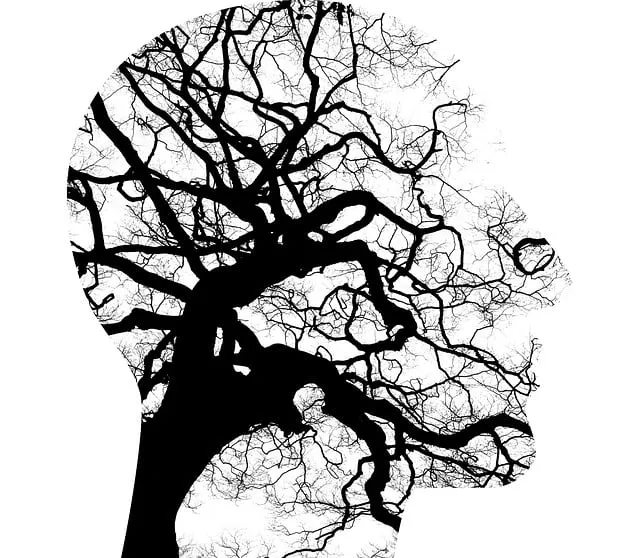Mental wellness programs in Longmont, supported by healthcare networks like Kaiser, are vital for overall well-being and managing mental health conditions. These programs include public awareness campaigns, specialized interventions like mood management, and early detection strategies for providers. Through community and workplace integration, Longmont fosters open conversations about mental health, reduces stigma, and ensures access to resources. Kaiser covers mental health therapy in Longmont, offering diverse therapeutic services tailored to individual needs, from traditional talk therapy to art and music therapy. Evaluation methods go beyond symptom assessment, tracking overall well-being and personal growth through structured interviews, self-report questionnaires, and conflict resolution techniques. Effective programs measure tangible improvements like reduced anxiety symptoms and better coping strategies using pre-post assessments. Continuous improvement through data-driven strategies and feedback ensures interventions meet participants' needs, normalizing conversations around mental wellness and fostering a supportive environment for mental health growth.
Mental wellness programs have become increasingly vital in addressing the growing need for accessible healthcare. This article explores evaluation methods for such initiatives, with a specific focus on understanding their importance and assessing their effectiveness. We delve into best practices, including how to navigate Kaiser’s coverage for mental health therapy in Longmont. By examining these strategies, organizations can continuously improve their programs and better support individual well-being.
- Understanding Mental Wellness Programs
- Kaiser's Coverage for Mental Health Therapy
- Evaluation Methods: A Comprehensive Overview
- Assessing Program Effectiveness
- Best Practices for Continuous Improvement
Understanding Mental Wellness Programs

Mental wellness programs are designed to promote overall well-being and prevent or manage mental health conditions. These initiatives can range from public awareness campaigns that educate individuals about recognizing and addressing mental health issues, to specialized interventions like mood management techniques and burnout prevention strategies tailored for healthcare providers. Understanding these programs involves comprehending their multifaceted nature, which includes early detection, treatment, and support systems.
Longmont, for instance, offers various mental health services, with Kaiser potentially providing coverage for therapy through its network of healthcare professionals. Such programs are crucial in fostering an environment that prioritizes mental wellness alongside physical health. By integrating these initiatives into community and workplace settings, we can encourage open conversations about mental health, reduce stigma, and ensure individuals have access to the resources they need to lead fulfilling lives.
Kaiser's Coverage for Mental Health Therapy

In Longmont, Kaiser’s coverage for mental health therapy offers a comprehensive range of services aimed at promoting and maintaining emotional well-being. The insurance plan includes access to various therapists and counselors who specialize in different therapeutic approaches, ensuring individuals have options tailored to their unique needs. Beyond traditional talk therapy, Kaiser’s network supports innovative practices like art therapy, music therapy, and mindfulness workshops, highlighting a commitment to holistic mental health care.
The coverage extends to a variety of mental wellness programs designed to address common issues such as stress management, anxiety disorders, and mood disorders. Additionally, Kaiser encourages the use of conflict resolution techniques and emotional healing processes through its network of professionals. By providing these resources, Kaiser in Longmont plays a vital role in fostering community mental health and empowering individuals to lead healthier lives.
Evaluation Methods: A Comprehensive Overview

Evaluation methods play a pivotal role in determining the effectiveness of mental wellness programs. These techniques go beyond simply assessing symptoms to gauge overall well-being and personal growth. Longmont residents, curious about Kaiser’s coverage for mental health therapy, can rest assured that many comprehensive approaches are available. One popular method involves structured interviews where professionals delve into individuals’ experiences, thoughts, and behaviors, providing insights tailored to their unique needs.
Additionally, self-report questionnaires offer a powerful tool for gauging progress in areas such as anxiety relief and cultivating positive thinking. These assessments empower individuals to track changes over time and identify specific aspects of their mental wellness that require further attention. Conflict resolution techniques are also integral to evaluation, fostering healthy communication and coping strategies that contribute to long-term well-being.
Assessing Program Effectiveness

Evaluating the effectiveness of a mental wellness program is a multifaceted process that goes beyond simply measuring satisfaction levels. It involves assessing tangible improvements in participants’ mental health, such as reduced symptoms of anxiety or depression, enhanced coping strategies, and better stress management skills. One effective method to gauge these changes is through pre-post assessments, where individuals complete standardized questionnaires before and after the program to track their psychological well-being.
Longmont does Kaiser cover mental health therapy? Yes, Kaiser Health Insurance offers comprehensive mental healthcare services, potentially including therapy options within their network. Additionally, Stress Management Workshops Organization often incorporate cultural sensitivity in mental healthcare practice, ensuring diverse participants feel supported. Incorporating exercises like Mental Wellness Journaling can also provide valuable insights into individual progress and offer tailored guidance for continued mental wellness.
Best Practices for Continuous Improvement

In the pursuit of enhancing mental wellness programs, continuous improvement is paramount. Best practices involve a multifaceted approach, incorporating data-driven strategies and stakeholder feedback. Regularly assessing program impact through surveys, interviews, and quantitative metrics ensures that interventions align with participants’ evolving needs. Longmont does Kaiser cover mental health therapy? Understanding coverage details can further facilitate access to care. Mental Health Awareness initiatives should be integrated into the fabric of the program, fostering open dialogue and normalizing conversations around mental wellness.
Encouraging Coping Skills Development through interactive workshops, group discussions, and personalized guidance empowers individuals to navigate challenges effectively. A simple yet powerful tool like Mental Wellness Journaling Exercises can be provided to help participants reflect on their experiences, track progress, and cultivate resilience. By blending these strategies, programs can evolve dynamically, addressing emerging trends and ensuring a supportive environment for mental health growth.
Mental wellness programs are integral components of modern healthcare, and evaluating their effectiveness is crucial for continuous improvement. As Longmont residents explore options for mental health support, understanding evaluation methods becomes essential. Kaiser’s comprehensive coverage for mental health therapy provides a solid foundation, offering diverse treatment options. By employing robust assessment techniques, such as pre-post testing, qualitative feedback, and outcome measures, programs can gauge their impact. Adhering to best practices ensures that these evaluations lead to actionable improvements, ultimately enhancing the quality of care. With a strategic approach to mental wellness program evaluation, Longmont residents can access more effective and tailored therapeutic services.






